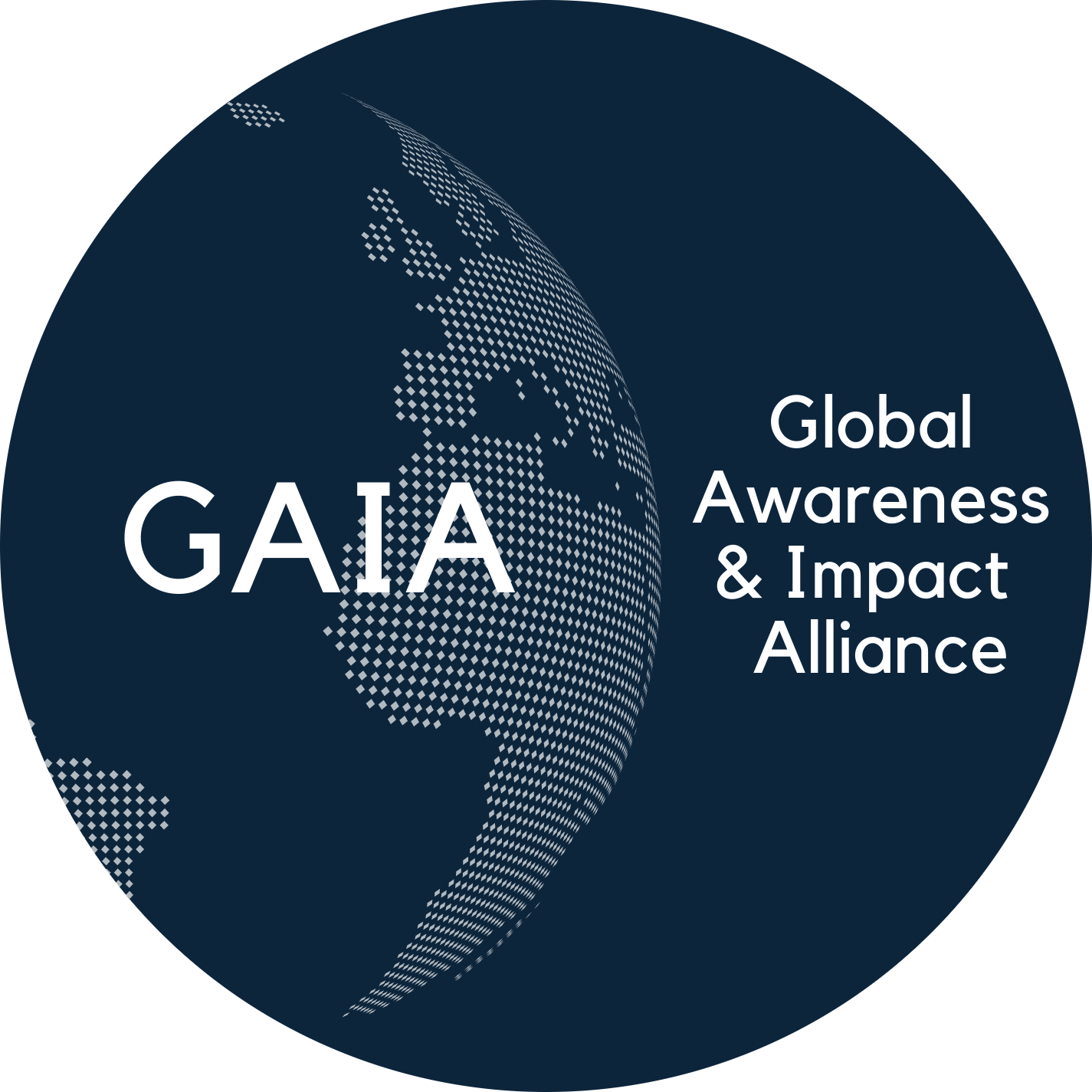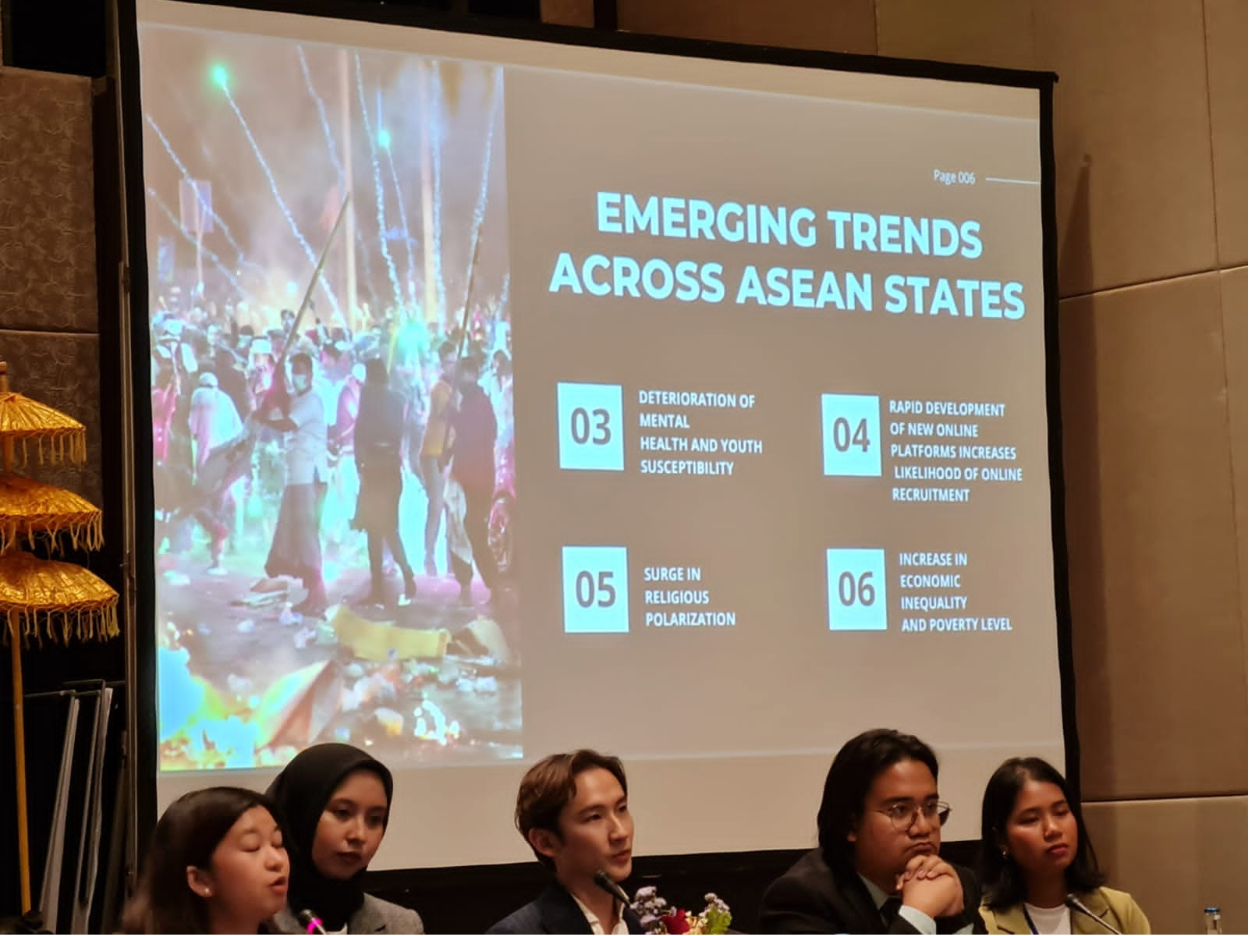Dr. Mu’izz attends the 3rd ASEAN-U.S. Regional Workshop on Preventing Violence and Countering Extremism (P/CVE) in Bali, Indonesia
by Research Associate Dr. Mu’izz Abdul Khalid
From June 6-7, 2023, Global Awareness and Impact Alliance (GAIA) Research Associate Dr. Mu’izz Abdul Khalid attended the 3rd ASEAN-U.S. Regional Workshop on P/CVE in Bali, Indonesia. Alongside four youth leaders from the region, Dr. Mu’izz was selected to go for this workshop following the ASEAN Rising Leaders Program, hosted by the Habibie Center, in South Jakarta. The other youth leaders included representatives from Malaysia, Indonesia, Cambodia, and the Philippines. Funded generously by USAID, the workshop brought different stakeholders from each country in Southeast Asia, including representatives from the government, non-governmental organizations, and civil society organizations.
Prior to the workshop, Dr. Mu’izz and the other youth leaders worked strenuously to prepare for their presentation that focused on providing a youth perspective on issues related to P/CVE within the region. They primarily based their presentation following Clause 2 of the 2nd ASEAN–U.S. Regional Workshop on P/CVE Non-Binding Recommendations, which states:
“We recommend that ASEAN seeks ways to provide meaningful engagement for both urban and non urban youth in ASEAN’s P/CVE efforts, including: 1) providing structures for youth representation; and 2) sustained and targeted support for youth initiatives, building upon the USAID PROSPECT workshops and working groups for youth highlighted at the workshop and some of their recommendations for ASEAN, including knowledge sharing on best practices.”
Trained by P/CVE experts from the Habibie Center like Dr. Julia Novrita, the youth perspective consisted of an array of fresh outlooks for recommendations, such as defining an ASEAN understanding of “violent extremism, introducing peace education in school curriculum, establishing more gender-neutral policies, improving on current intervention, rehabilitation, and reintegration programs, as well as incorporating more youths into policy-making across the region. In particular, Dr. Mu’izz pressed on the need to have a proper working definition on 'Violent Extremism' that can be agreed upon by each ASEAN state. This working definition is essential in countering violent extremism and promoting peace within Southeast Asia because different regions operate under specific historical and political contexts. It begs the difficult question of whether, as in the case of Myanmar, state violence qualifies as an act of violent extremism. Le Sen from Cambodia underscored the importance of peace education as a tool to alleviate conditions and factors that could potentially lead to violent extremism such as xenophobia, racism, and religious polarity. Peace education can allow for Southeast Asian citizens to understand different cultures, religions, values, and ways of living in a multiethnic, multicultural, and multireligious society. Meanwhile, Rizka from Indonesia put emphasis on the current policy biases favoring men over women, which resulted in the need for government policy-makers to be more aware of androcentric, patriarchal, and misogynistic values.
Raja Khairul Akhtar from Malaysia suggested the improvement of intervention, rehabilitation, and reintegration programs relating to P/CVE. He believed that state and communitarian interventions are essential in preventing further radicalization of victims and thereby stopping violent extremism. Concurrently, he observed from research that rehabilitation and reintegration programs of radicalized individuals into society have been rather lacking across Southeast Asian states. Linar from the Philippines highlighted the importance of the Youth, Peace, and Security (YPS Agenda). She proposed that institutionalizing such an agenda through policies and national action plans in each state will eventually lead to a ASEAN Regional Action Plan on YPS. At present, only the Philippines has institutionalized the YPS Agenda.
It was a great pleasure for me and the other youth delegates to be chosen for this year's session. It has introduced us to an assortment of regional stakeholders, which has improved our networks. The fact that everyone of us from various areas of the region contributed to the drafting of this year's non-binding recommendations to ASEAN in order to promote peace and avert violence in Southeast Asia was something we all deeply appreciated.



